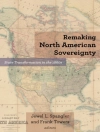Explores the variety of legal and regulatory regimes that existed in Western Europe to control labour and how workers experienced those controls.
Many economic historians have assumed that labour in Western Europe was ‘free’ after the end of serfdom in the fifteenth century. These assumptions are increasingly being questioned and labour laws have been identified as creating significant restrictions on workers’ freedom. This collection is the first book to look at labour laws across Western Europe from a longer-term perspective. It is interdisciplinary in nature bringing together studies in social, political, economic and legal history.
Elements of labour legislation appeared before the Black Death, but were strengthened afterwards particularly in places and periods where labour became scarce. The collection focuses on the rural economy in the late medieval and early modern period. It provides a series of studies which introduce a range of approaches to labour regulation and the very idea of labour across Europe. Uniquely, the collection offers observations on the impact of labour laws on everyday social relations. Attempts to regulate work and labour varied widely: in places they amounted to wishful thinking on the part of the regional authorities, whereas elsewhere they could impose severe limitations on individual freedoms.
Contributors: Davide Christoferi, Theresa Johnsson, Thijs Lambrecht, Charmian Mansell, Francine Michaud, Hanne Østhus, Raffaella Sarti, Carolina Uppenberg and Jane Whittle.
Table of Content
List of Illustrations
List of Contributors
Acknowledgements
Introduction: Towards a Comparative History of Europe’s Labour Laws c.1350-1850
Thijs Lambrecht and Jane Whittle
Part I: Regulating Agricultural Workers c.1350-1600
1. Attitudes to Wage Labour in English Labour Legislation, 1349-1601
Jane Whittle
2. Agricultural Workers and their Contractual Terms of Employment in Marseille, 1349-1400
Francine Michaud
3. The Ties that Bind:
Mezzadria and Labour Regulations after the Black Death in Florence and Siena, 1348-c.1500
Davide Cristoferi
Part II: The Regulation and Classification of Labour in Early Modern Europe
4. Slaves, Servants and Other Dependent People: Early Modern Classifications and Western Europe’s Self-Representation
Raffaella Sarti
5. The Servant, the Law and the State: Servant Law in Denmark-Norway, c.1600-1800
Hanne Østhus
6. Labour Legislation in the Southern Low Countries, c.1600 – c.1820
Thijs Lambrecht
7. Dimensions of Free and Unfree Labour in the Swedish Servant Acts, 1664-1858
Carolina Uppenberg
Part III: The Experience of Regulation
8. Objecting to Youth: Popular Attitudes to Service as a Form of Social and Economic Control in England, 1564-1641
Charmian Mansell
9. Exposed Lives: Compulsory Service and ‘Vagrancy’ Practices in Sweden in the 1830s
Theresa Johnsson
10. The Moral Economy of Compulsory Service: Labour Regulations in Law and Practice in Nineteenth-Century Iceland
Vilhelm Vilhelmsson
Index
About the author
THIJS LAMBRECHT is Lecturer in Rural History at the University of Ghent.












